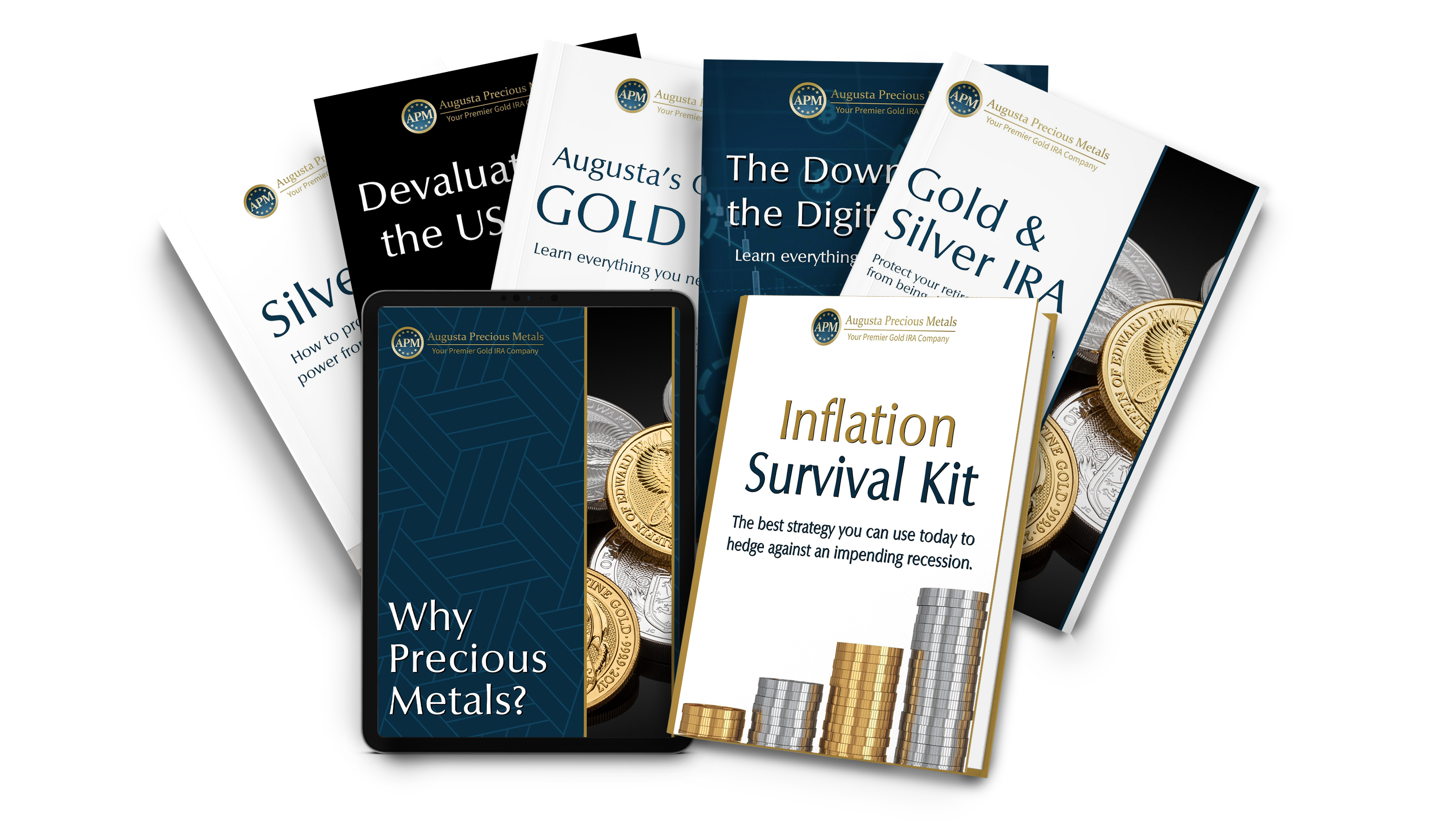As analysts examine the current cycle of inflation, there is talk that the commodities bull will extend and gold investment will continue to be the solution of choice for many retirement savers.
This is in spite of a feeling that the recent inflationary period may be coming to a close.
Interest rate hikes do appear to have helped rein in price pressures that had pushed the annual consumer price index (CPI) above 9%.[1]
But the most recent data seems to indicate inflation isn’t really over. September’s core CPI (not including volatile food and energy prices) accelerated year over year, to 3.3% from 3.2%.[2]
The thing is...a variety of factors OTHER THAN very high inflation could come together to create greater price pressures, which could be called “structural inflation.”
Because real assets like gold sometimes help hedge against inflation, commodities including precious metals may perform better than other more-traditional financial assets during times of high inflation, like today.
Two Reasons Gold Investment Is Appealing in the Commodities Bull
Commodities can be positioned as a hedge against inflation because their price tends to rise as demand increases for the finished products they are used to produce.
In addition, inflation can be detrimental to stocks and bonds because rising price pressures can hurt the future value of cash flows paid by financial assets.[3]
It is for these two separate reasons that commodities such as gold can effectively diversify a portfolio and reduce its overall volatility.[4]
Further benefits of commodities include the fact that they have been outperformers (even over bonds) since the global health crisis triggered a period of high inflation.
Analysts at Bank of America (BofA) recently suggested it may be time investors actually take a real hard look at exchanging bonds for commodities as the 40% allocation in the classic 60/40 portfolio model [5], declaring that:
“...the commodity secular bull market in the 2020s is just getting started as debt, deficits, demographics, reverse-globalization, AI and net zero policies are all inflationary.”[6]
Other respected analysts have opinions that align with BofA. (More details in full article.)
Featured Partners (Ad)
Commodities Bull Benefits from “Calm Before Storm”
At Kitco News, BNP Paribas’ Philippe Gijsels, chief strategy officer at BNP Paribas, said inflation’s current state represents the “calm before the storm.” [7] Other analysts agree.
They say the Federal Reserve’s 2% target is not likely to be reached, due to complications such as surging energy costs, moves toward deglobalization, and exploding government spending.
How does Gijsels believe that could affect commodities like gold?
“I think we’re still at the very first inning of what will be a major bull market in commodities,” he said, adding that he thinks inflation will eventually “run wild” due to monetary policies and the national debt. [8]
Analysts Show Preference for Precious Metals in This Commodities Bull
In addition to his positive assessment of commodities in general, Gijsels is not shy about more specifically stating his preference for gold based on it’s recent performance and the strength shown by commodities overall.
“When gold was $1,600 and $1,700 per ounce, everybody said, ‘You’re absolutely crazy.’ Well, now we’re going to $3,000. But that’s the way a bull market works.”[9]
He also favors silver due to its role in energy. He sees silver going to $50 per ounce and beyond.”[10]
Other premiere analysts are choosing precious metals as the “commodity of commodities” right now, in terms of projected performance – two of which are Goldman Sachs [11] and Societe Generale (SocGen). [12]
Gold Investment Chosen by Savvy Investors Now
These days, it’s easy for retail investors to engage high-quality physical precious metals safely through a sometimes-overlooked change in the tax code that occurred in 1997. [13] (Be sure to discuss any tax implications with a qualified financial professional.)
Not all investors are familiar with this option, because it is a relatively new way to diversify and protect retirement savings.
And the alternative investment option is not for everyone. However, considering the material economic and financial changes Gijsels and others are talking about right now, it may be time for retirement investors to find out more and see if gold investment is a fit for them in this commodities bull.
Citations:
[1] Bureau of Labor Statistics, “Consumer Price Index Archived News Releases” (accessed 10/10/24).
[2] Jeff Cox, CNBC.com, “Inflation rate hit 2.4% in September, topping expectations; jobless claims highest since August 2023” (October 10, 2024, accessed 10/10/24).
[3] Pimco.com, “Commodities” (accessed 10/10/24).
[4] Ibid.
[5] Sagarika Jaisinghani, BNN Bloomberg, “Swap Bonds for Commodities in 60/40 Funds, BofA Strategists Say” (August 30, 2024, accessed 10/10/24).
[6] Ibid.
[7] Kitco News, “‘First inning’ of a massive commodities bull market that will see prices double or triple – Philippe Gijsels” (October 3, 2024, accessed 10/10/24).
[8] Ibid.
[9] Ibid.
[10] Ibid.
[11] Matthew Fox, Business Insider, “3 reasons to pile into gold with the metal poised to rally in 2025, according to Goldman Sachs” (September 3, 2024, accessed 10/10/24).
[12] Ernest Hoffman, Kitco, “Gold to average $2,800/oz by 2025, now represents 100% of commodity allocation – SocGen” (September 16, 2024, accessed 10/10/24).
[13] TaxNotes.com, “Taxpayer Relief Act of 1997 (P.L. 105-34)” (August 5, 1997, accessed 10/10/24).
Content quality approved by JPost. JPost oversees the native, paid, and sponsored content on this website and guarantees quality, relevance, and value for the audience. However, articles attributed to this byline are provided by paying advertisers and the opinions expressed in the content do not necessarily express the opinions of JPost.The sponsor retains the responsibility of this content and has the copyright of the material. For all health concerns, it is best to seek the advice of your doctor or a legal practitioner.

